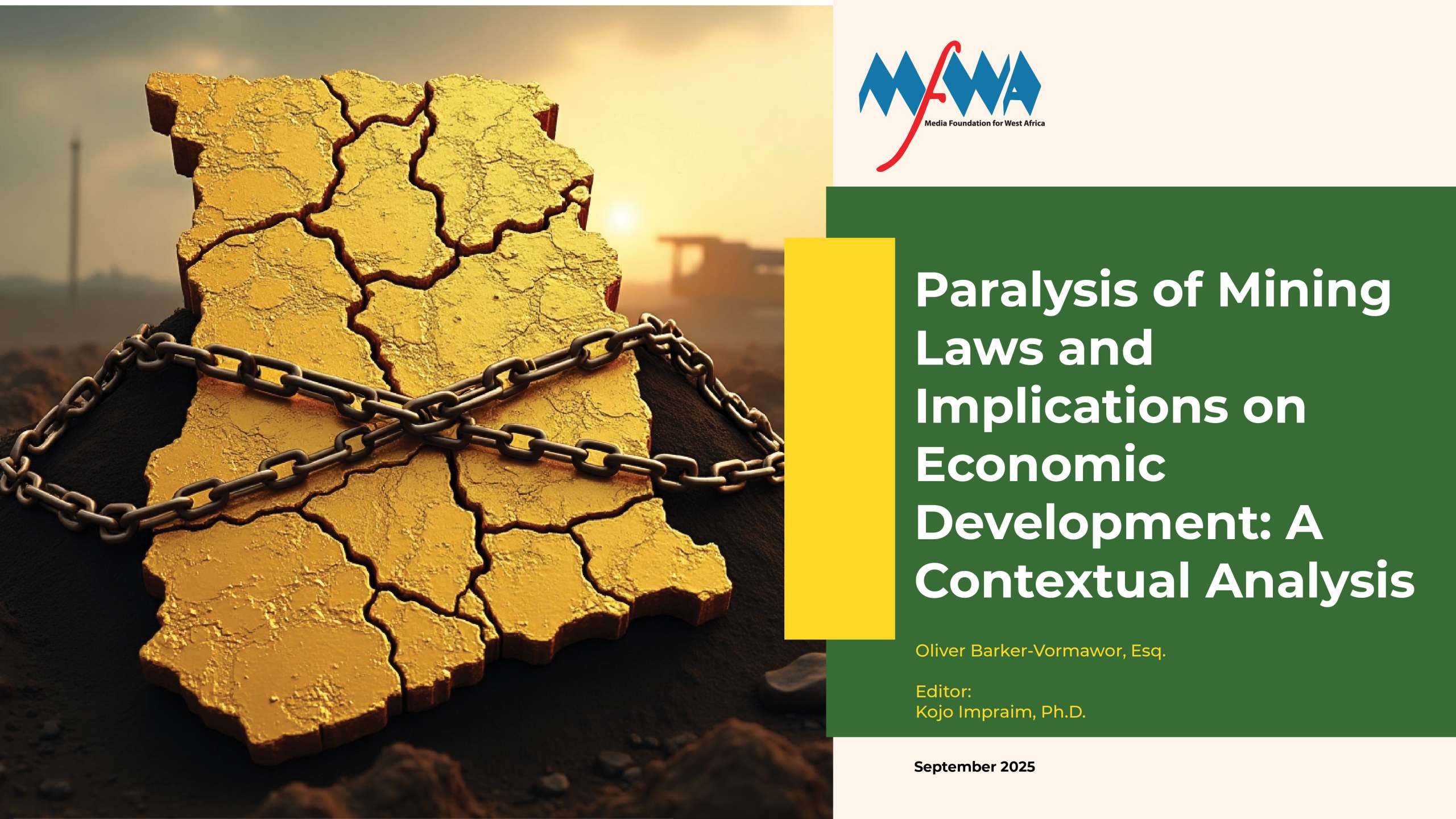Ghana’s democracy has gradually shifted into deep political polarisation, especially between the two dominant parties—the NDC and NPP. This has fuelled a “winner-takes-all” governance culture, entrenched patronage systems, and policy paralysis on critical national issues. One of the most pressing victims of this paralysis is the fight against illegal small-scale mining, commonly known as galamsey.
Despite numerous laws and repeated government interventions, illegal mining continues to devastate the environment, pollute water bodies, degrade farmlands, and threaten livelihoods and food security. The situation is further complicated by the political influence of individuals who finance both mining and major political parties, making decisive action both sensitive and costly.
To respond to this crisis, the Media Foundation for West Africa (MFWA), in partnership with the National Peace Council (NPC), National Commission for Civic Education (NCCE), and other key state, traditional, and religious institutions, is implementing the project: “Breaking the Gridlock: Resolving Polarisation-Induced Policy Paralysis in Ghana.” A major component of this initiative is the High-Level National Dialogue on Mobilising Citizens’ Consensus on Solutions to the Galamsey Crisis, scheduled for 28–29 October 2025.
As part of the dialogue preparations, five expert research papers were commissioned to provide evidence-based analysis and inform discussions. These papers focus on the impacts of illegal mining on the environment, water resources, agriculture, health, forest reserves, and peace and security.
About this report
Mining is one of the major primary economic activities in Ghana. It plays a vital part contributing significantly to foreign exchange earnings and the country’s GDP. Over the years, the sector has contributed significantly to Ghana’s socio-economic development through revenue generation, employment creation and increase in foreign direct investments. This can somewhat be attributed largely to the institution of comprehensive and attractive legal, fiscal and institutional frameworks, which have helped to attract investments into the mining industry. Despite its potential, the mining sector continues to face regulatory, environmental, and socio-economic challenges. This report examines the gaps and inefficiencies in Ghana’s mining laws and policies, explores how these contribute to economic stagnation, and proposes strategic reforms to align Ghana’s mining governance with responsible global practices.
Download the report here.






